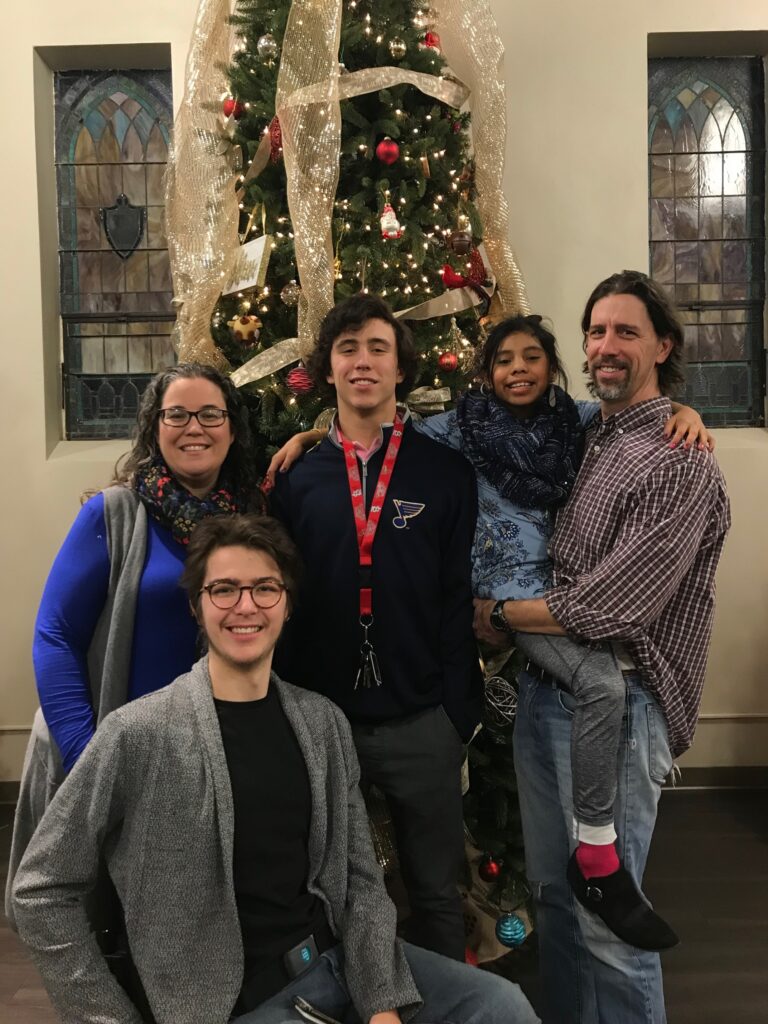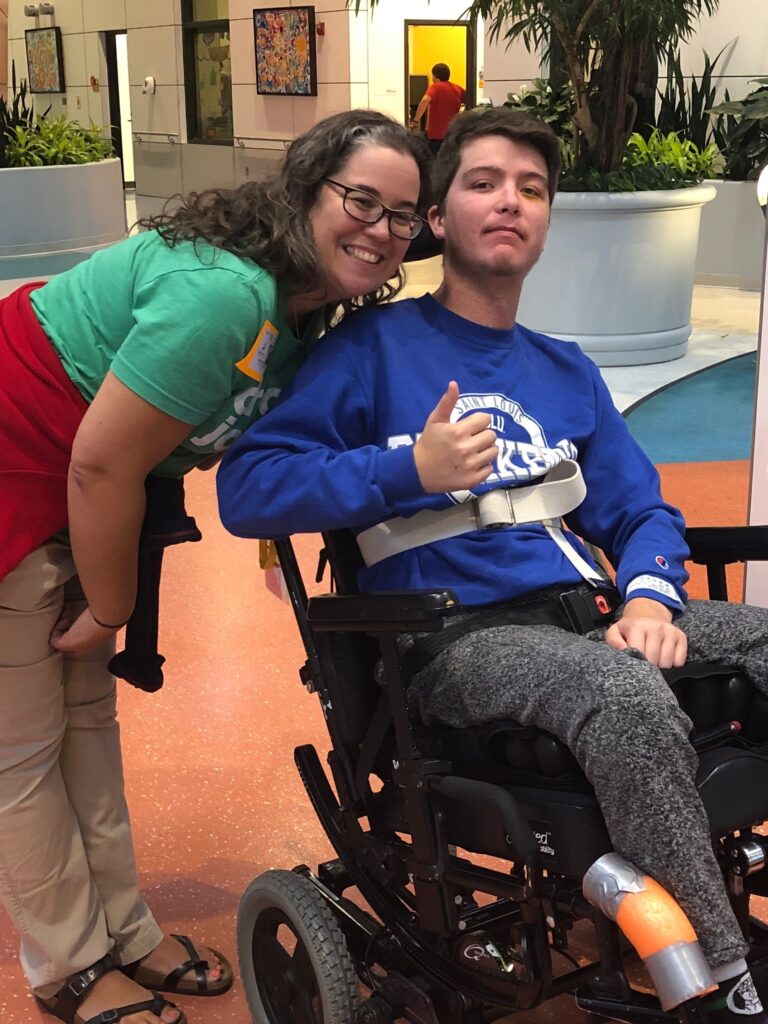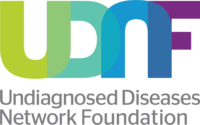24 Jan Michele Herndon


From the age of 12, our son Mitchell lived each day knowing that an unknown disease was slowly robbing him of his hearing, leg movement and sensation, and his overall independence. He was receiving care from neurologists and specialists at one of the top pediatric hospitals and medical schools in the country and had visited specialists in two other states. Despite lab tests, radiology tests, and even exome sequencing, doctors were unable to give him a diagnosis or prognosis.
In 2017, five years after his symptoms began, Mitchell and I took a trip to Houston, to visit the Baylor campus of the Undiagnosed Diseases Network (UDN). We had hoped that the same city which helped launch rockets into space could provide the technology and know-how to give us some answers. (And we did get to see NASA on an exciting behind-the-scenes tour.)
We were correct that the UDN could help. Soon after our trip to Houston, the UDN contacted us and told us they believed a previously found variant of unknown significance was potentially causing Mitchell’s symptoms. As part of the follow-up to Mitchell’s visit, Dr. Hugo Bellen and his team at Baylor would be creating Mitchell’s genetic variant in fruit flies to study. While it’s hard to fathom how medical technology can alter the genomes of fruit flies to test for human disease, we were fascinated to learn that the fruit flies that had been given Mitchell’s variant were unable to fly, and showed neurological damage like his. Along with other tests done by the researchers at the Bellen Lab, the UDN confirmed their suspicions on the genetic cause of Mitchell’s illness. After so many years of hearing doctors tell us they didn’t know what was happening in our son’s body, it was a relief to finally have an explanation.
Having a diagnosis isn’t a cure, though—but it is a step in the right direction. With knowledge of Mitchell’s illness, Dr. Bellen and his lab began trying different therapies on the flies to look for possible treatments. With knowledge of what is now known as “Mitchell Syndrome,” six other patients have been identified with Mitchell’s genetic variant.
Sadly, our son’s battle with his disease ended in October of 2019, at the age of 19. Even in his too-short life he left a legacy—attending college on a full-tuition scholarship, befriending everyone he met, and inspiring many with his perseverance. Even with his passing, researchers at the Bellen Lab continue to perform potentially life-saving research into medical treatments that might be able to help kids like Mitchell. If Mitchell’s legacy can include discoveries of medical treatments to help people like him, he would be glad to know it. We will be, too.



